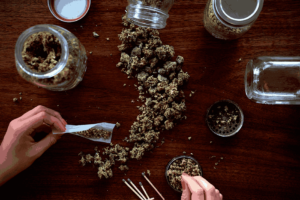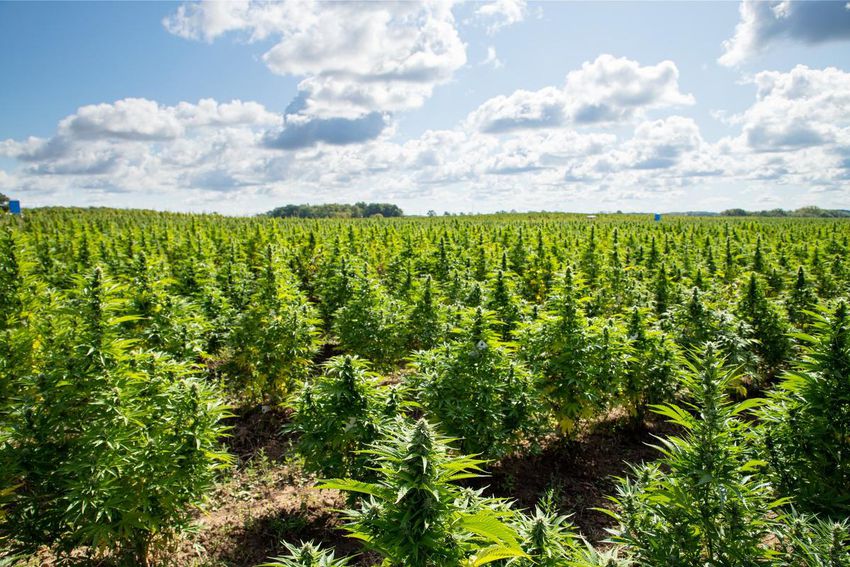Cannabis is an extremely dynamic and versatile plant which is now found in a wide array of household, industrial, and medicinal products. You may find that hemp seed oil is an ingredient listed in your toothpaste because it naturally whitens teeth, or that CBD extract is now included in your daily moisturizer due to its anti-inflammatory properties. It may surprise you to find that even your t-shirt, home insulation, and plant holders contain hemp materials due to its impressive strength and flexibility as a textile. It is more likely however, that when you hear the word “cannabis”, your mind jumps to that of vape cartridges, skunky-smelling buds, colorful gummies, or even fast-acting tinctures lining dispensary shelves.
Perhaps you live in a state where marijuana has been recreationilized, or you are an MMJ (Medical Marijuana) patient just trying to learn the in’s and out’s of a booming industry with a seemingly infinite variety of different products both local and online. This variety can prove overwhelming for even the most experienced toker. With over 700 strains of cannabis available, varying levels of THC and other cannabinoids, and hundreds of different types of products available for consumption, it is understandable why.

Media publishing companies such as Forbes and Business Insider routinely cover stories on the fast-paced environment of the hemp industry, including everything from marijuana stocks to new dispensaries opening. Some marketing agencies work with specialized focus groups to cater towards the niche market of consumers who seek these products out, while others focus on distancing themselves and their image from cannabis culture. Despite its seedy past, finding products that confidently boast cannabis as their active or main ingredient is no longer an impossible task; patients find it at dispensaries, consumers find it at their local Walmart, and it’s more common than ever to see products like delta-8-THC available for purchase at various types of storefronts across the United States.
But what is delta-8-THC, and how does it relate to the federally illegal substance known simply as “THC”? By now, most people realize you can go into a local gas station or convenience store and find glass jars of delta-8-THC flower or CBD pain-relieving salve for sale on store shelves. Both tout a broad spectrum of medicinal benefits, portraying their effectiveness as something similar to a tonic (a medicinal substance taken to give a feeling of vigor or well-being). Although they serve to complement each other, CBD and delta-8-THC are often used for remarkably different purposes, and have little in common with the medical marijuana found in dispensaries today.
WHAT IS THE DIFFERENCE?
The only true difference between delta-9-tetrahydrocannabinol (the illegal compound derived by cannabis) and delta-8-tetrahydrocannabinol is on a molecular level, and consists of the location of a double bond between two carbons. Unlike CBD, which it is typically manufactured and derived from, delta-8-THC provides an intoxicating euphoric effect that many will find reminiscent of its isomer (same atomic number, different arrangement of atoms) molecule, delta-9-THC. Joe Salome, the owner of Georgia Hemp Company, even goes as far as to say that Delta-8 is “very similar to its psychoactive brother THC, without the same anxiety-producing high that some can experience with THC.”
In order to convert the compound from CBD to delta-8, it must be combined with some form of acid, solvent, or heat. The final product is then remediated and tested to make sure no “accidental” byproducts remain. Solvents such as toluene or heptane, metal catalysts, and strong acids being introduced into already aggressive synthetic conditions are used to achieve this extraction, and usually, pharmacists would be tasked with ensuring products made for human consumption don’t include harmful unconsumed reactants. Not only are delta-8 products not given this diligence, they’re also not produced with proper reaction safety controls all too often, puting manufacturers at risk as well. The FDA has shared concerns that delta-8-THC products likely expose consumers to higher levels of the substance than are naturally occurring in hemp cannabis raw extracts due to the nature of how it is concentrated. Since it doesn’t naturally exist in significant amounts in the cannabis plant, establishing a measure of reasonable safety without further testing is putting the cart before the horse, according to FDA regulations. Additionally, lack of proper regulations, standardizations, and laboratory testing have rendered products containing it inconsistent and potentially even hazardous to itsconsumers. National poison control centers received 660 calls in just six months which directly involved exposure to delta-8-THC, according to the FDA’s consumer report on the compound.

It is important to note that a lot of what makes marijuana “medical” has to do with how the plant is grown, harvested, cured, processed, tracked, and prepared for medicinal use. Marijuana manufactured for recreational use, or for the purpose of skirting certain federal laws, is not necessarily held up to the same standards. It has been well documented, for example, that myclobutanil (commonly known as Eagle 20), has been used during the growth stage of cannabis cultivation as a systemic fungicide despite the fact that very little is known about the health effects of inhaling it directly into the lungs once produced and sold. The average consumer is generally none the wiser, and there have been reports of prolonged exposure leading to various cardiovascular, respiratory, and neurological illnesses. While medical marijuana dispensaries are required to test and post results for heavy metals, pesticides, and solvents such as Vitamin E Acetate, the Wild Open West is still very much alive in the hemp industry with products listing delta-8-THC as one of their main ingredients.
Market demand has compelled several independently-owned research teams and laboratories to begin finding a way to derive the elusive delta-10-THC molecule for mass production as well. The massive uptick of availability with delta-8 products came about largely due to the 2018 Farm Bill, a federal legislation that legalized widespread hemp farming and distribution among other implementations. Both are psychoactive and federally legal under this Bill, serving as the catalyst for an isomerization Gold Rush.
MEDICAL MARIJUANA IS A SUPERIOR PRODUCT
There are four main methods of ingesting marijuana: inhalation, oral, sublingual, and topical. Each method has its own list of unique characteristics that medical marijuana physicians and pharmacists use to indicate it for specific medicinal uses. Speaking to a qualified physician or dispensary staff who are certified in their field is, of course, a major plus for MMJ patients. Those who choose to consume cannabis that has not been tested for impurities, by-products, or harmful additives are at risk of actually diminishing their overall health instead of supporting it. While the Washington Liquor and Cannabis Board notes that testing for THC isomers is “evolving and not yet standardized”, it’s unclear whether or not labs are even testing for the right contaminants in the first place. Many states are now looking into controlling the sale of delta-8-THC, but are not expressing any interest in regulating it appropriately, an issue that is unfortunately not uncommon in the rest of the world.

When it comes to weighing the differences between medical marijuana and that which is found on gas station or convenience store shelves, there seems to be more questions than answers. For most consumers, that uncertainty is enough to stave away from products containing delta-8 or delta-10 THC for now. The choice is that much more important for people who are looking to cannabis for its beneficial medicinal indications; the medication you purchase should be helping to treat or subdue your condition, not further invigorate it. For more information on how you can obtain your medical marijuana card today, To learn more about Medical Marijuana, Medical Marijuana recommendations, and how to obtain one, visit https://missourimmjcard.com/ or give us a call at (580) 606-6741!
710 Card
211 North Broadway
St. Louis, Missouri 63102
(508) 606-6741
Find us on social media:




